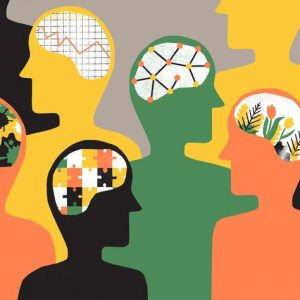Personality of Cancer
- nrgwellnessgroup
- Oct 20, 2021
- 3 min read

Believe it or not, there may be a personality type that appears to be more prone to developing cancer in the body.
Emotional Connection to Cancer
Cancer is not just a physical disease. The medical profession tends to look at this aspect of disease, the body, and usually only this aspect. Cancer is a very emotional disease. Studies are showing that there is a connection between psychological stress and physiological response. The immune system can be greatly impacted by the stress suppressing its function.
Dr. Gabor Mate
Dr Gabor Mate, best selling author, teacher/presenter, and retired MD, has spent over 25 years in clinical practice. His practical experiences lead to a profound understanding of the connection of stress, particularly in early childhood, and the resulting physical, mental, and emotional dysfunction later in life.
In his brilliant book, When The Body Says NO, Dr. Mate’s own experiences and the studies he has researched have made it clear that when we are experiencing illnesses, our bodies are saying ‘NO’ to help us become aware of the unconscious stresses that are affecting us. We are impacted daily by those stresses even though we may have no awareness about the underlying causes of the stress and subsequent illnesses. That impact, over long periods of times, can lead us to dysfunction in our lives and into dis-eased states. In his book, he describes what character traits may be risk factors in cancer.
'Type C Personality'
There is are several recognizable character traits more likely to be found in people with cancer than people who do not get this disease. The group of characteristics are defined as 'Type C personality'. Most of us are aware of the Type A person; they are seen as angry, tense, fast, aggressive, in control and are more prone to heart disease. 'Type B' are the balance moderate people who can feel and express emotions in a controlled way; they don’t lose themselves in emotional outbursts. 'Type C' is at the other end of the spectrum from 'Type A'. More laid back than Type A, Type C has been described as:
extremely cooperative
patient
passive
lacking assertiveness
accepting
represses ‘negative’ emotions, particularly anger while maintaining a strong and happy facade.
The personality is often summed as someone who is ‘nice’ and ‘good’. These traits were noted in a study in Melbourne Australia. Researches reported the following traits in respect to cancer of the colon or rectum:
“… the elements of denial and repression of anger and of other negative emotions….
the external appearance of ‘nice’ or ‘good’ people,
a suppression of reactions which may offend others, and
the avoidance of conflict. “
None of these observations are a criticism of people with cancer or judgement about how they live their lives; these observations are only meant to bring awareness to what parts of the puzzle of healing cancer may have not yet been seen.
What Can Be Done?
What can be done with this information? Plenty. A great place to start is by reading the book “When the Body Says NO – The Cost of Hidden Stress by Dr. Gabor Mate, MD. With this new understanding from reading the book, you can find a good counselor to help you to explore and resolve the childhood traumas that are the underlying cause of your current health situation, whether it be cancer or other chronic disease.
Terri, of The NRG Wellness Group, has completed training with Dr. Gabor Mate. She has learned and successfully practicing the exploration process of discovering what lies behind physical and emotional issues called 'Compassionate Inquiry'. Developed by Dr. Gabor Mate, he has successfully used this process to help people to learn to accept what lies within each of us.
What Are The Benefits of Exploring Our Stresses?
What lies with in us is a lifetime of experiences that we have not been able to identify. We therefore suffer the emotional stresses of our experiences every day of our lives. The feelings around the experiences have been well buried beyond our conscious awareness. What might you gain by exploring with Compassionate Inquiry?
Healing – of physical and emotional issues/diseases
Peace – through understanding of what actually happened in childhood and what is happening in relationship to yourself and others in your life
Freedom – to make choices based on the present, not the past
Authenticity – being able to become who we truly are, not what we believe we are
Compassion – for self, others, and the planet
If you can identify with the personality type described, you might want to get some help to resolve the underlying emotional issues. Terri is offering Compassionate Inquiry sessions at The NRG Wellness Group. Give us a call to find out more.
Much love,
Terri and Michael
'Beyond the Ordinary'




Comments